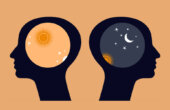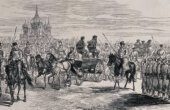History's Great Recommenders: From Ancient Times to Tomorrow
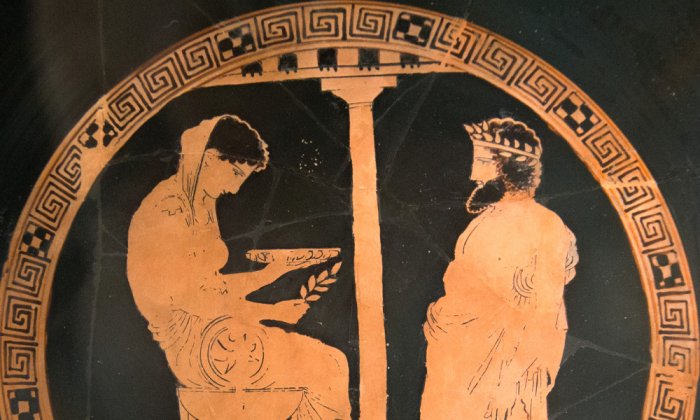
Where steam engines powered the industrial age, recommendation engines empower and influence our own. From music, books, and videos to foods, friendships, and careers, recommenders relentlessly personalize, customize, and transform choice. Yet this is not an entirely new idea. Yes, recommendation’s technical methodologies have radically changed, but humanity’s perennial struggle for self-knowledge and self-command has not. To understand the dynamics shaping the recommender future, there is no better way than to appreciate its rich and fabled past.
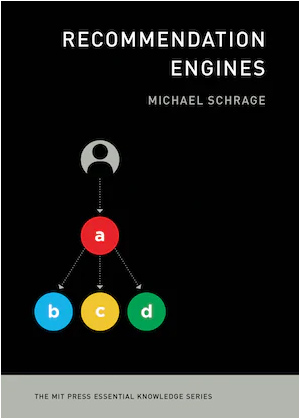
In the beginning, recommendation engines were divine. Kings and commoners both sought guidance from the gods. Ancient astrologers around the world charted heavenly influence. Oracles, seers, and soothsayers of classical antiquity interpreted auguries and omens for their concerned supplicants. Desire for divine counsel transcended time, culture, and geography. Indeed, the history of recommendation is the history of how people pursue and perceive advice.
Below, I’ve picked five people and institutions from history (5,000 years ago to the present) who best reflect the symbol and substance of recommendation’s global reach. My selections appear idiosyncratic because they are. But — trust me — these recommendations capture the dynamic essence of recommendation. I find it oddly appealing (and appealingly odd) how recommendation behaviors from thousands of years ago prove so relevant and revelatory today.
Fu Xi, “I Ching,” and the Birth of Binary Code
Let’s start with the mythical Chinese emperor Fu Xi, who over 5,000 years ago taught his people to domesticate animals, cook, fish with nets, and hunt with iron weapons. He also authored the “I Ching” (“The Book of Changes”), one of the oldest books in the world. A manual serving as a guide for moral living, it’s also designed to be a personalized oracle for one’s future. Observing the patterns of nature in the sky and on earth, Fu Xi translated them into divinatory insights. In one mythical version, he notes a certain pattern on the back of a turtle coming out of a river; in another, he sees three burning logs in a campfire. He finds that everything — the movement of clouds, the arrangement of stars — can be reduced to eight trigrams, each consisting of a stack of three solid or broken lines. This dichotomy — this duality — captures the yin and yang that both defines and drives the universe. Two trigrams equal a hexagram and Fu Xi’s 64 hexagrams capture the universality of human experience. Each hexagram has its own chapter.
Want to find your future? Formulate a question and create your hexagram through coin tosses (in ancient times, one used rice grains or yarrow sticks). Where there were once books, apps and websites now facilitate interpretation of your hexagrammatic advice. Think of the “I Ching” as a look-up table for personalized advice.
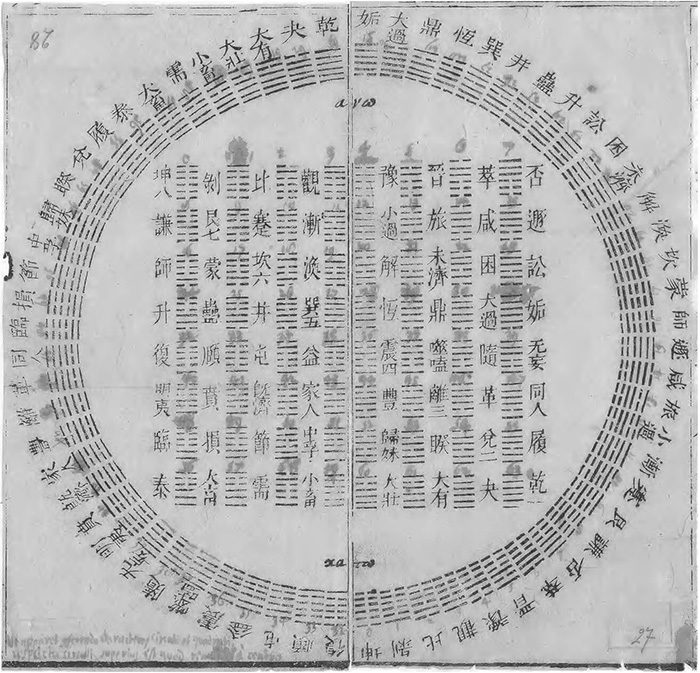
This proto-algorithmic approach caught the eye of Gottfried Leibniz, the great 17th-century German philosopher and mathematician. In fact, it inspired him to develop the binary number system: Leibniz entitled a monograph, “Explanation of the binary arithmetic, which uses only the characters 1 and 0, with some remarks on its usefulness, and on the light it throws on the ancient Chinese figures of Fu Xi,” a title any modern publisher would surely reject. He interpreted “Yin” and “Yang” as the binary code — the 1s and 0s. This explicitly digital framing makes the “I Ching” an enduring work of algorithmic innovation and influence, not just divination.
Pythia, the Oracle of Delphi
My favorite “Oracle of Delphi” recommendation features another philosopher, Socrates. The story goes like this: Chaerephon, a childhood friend, journeyed to Delphi, a sacred site where rulers and commoners alike consulted the high priestess oracle Pythia on matters of the future. Rather than seek his own fate or future, Chaerephon wondered just how wise and clever his good friend really was. The Pythian priestess’s response: “No man is wiser than Socrates.” Upon hearing this, skeptical Socrates couldn’t just take a divine compliment: “The ancient Oracle said that I was the wisest of all the Greeks. It is because I alone, of all the Greeks, know that I know nothing.”
This story appears in Plato’s “Apologia” and is meta to the max: It purveys knowledge and wisdom about purveyors of knowledge and wisdom from the era’s ultimate purveyors of knowledge and wisdom. Ironically but appropriately, this is where the spirit and substance of philosophical inquiry and community begins. Delphi’s oracle does for classical Western Culture what Fu Xi’s “I Ching” did for Asian antiquity: utterly transform societal expectations and experiences around agency, destiny, and advice.
Delphi’s oracle does for classical Western Culture what Fu Xi’s “I Ching” did for Asian antiquity: utterly transform societal expectations and experiences around agency, destiny, and advice.
As medium and method for transmitting divine data from the gods, the Pythia’s prognostications entwine with virtually every major moment of Greek and Roman history. Aesop of fables fame met his end at Delphi; Alexander the Great affirmed his greatness; Cicero rejuvenated his political career; an outraged Nero came to an earlier-than-he-expected predicted death. Delphi was central to Herodotus’ history and Plutarch (46-CE-120 CE) served as a priest at Delphi for 30 years before his passing. To emotionally, let alone rationally, grasp Greek and Roman leadership, conflict, and decision without appreciating the Oracle’s influence is culturally and contextually impossible.
While Delphi’s Pythias and priests were not algorithmic “recommender systems,” their rites and rituals evoked and imposed self-awareness and self-consciousness on their supplicants. Recall the three Delphic maxims inscribed at the Temple of Apollo: “Nothing to Excess;” “Know Thyself;” and “Certainty Brings Ruin.” Those heuristics framed how any and every Delphic utterance might be interpreted; who dares deny or defy their contemporary relevance? Delphi defined, designed, deployed, and weaponized the West’s first philosophy of advice, especially around self-help and self-improvement. Socrates’ legacy certainly suggests as much. Ultimately, you — the seeker — had to take responsibility for the advisory interpretation you chose to follow.
Gerolamo Cardano, Renaissance Polymath and Bad Boy
Gerolamo Cardano, Renaissance polymath and bad boy, surfaced as recommendation’s most bizarre influence and influencer. He represents the tipping point and transition between “looking to the gods” and “looking at the odds” for insight and advice. He’s a character. Born in 1501 as the bastard son of a jurist who tutored Leonardo da Vinci in geometry and a mom who sought to abort him, Cardano aspired to be larger than life. He largely succeeded. A serious physician, pharmacist, mathematician, biologist, physicist, engineer and philosopher, he was the epitome of a Renaissance Man. Describing himself as “cunning, crafty, sarcastic, diligent, impertinent, sad, treacherous, magician and sorcerer, miserable, hateful, lascivious, obscene, lying, obsequious,” he proved a genius of self-promotion. Our friend Gottfried Leibniz observed, “Cardano was a great man with all his faults, and without them he would be perfect.” Indeed.
As much recommendation engine as Renaissance Man, he shot to fame and notoriety as the greatest astrologer of the age. Cardano cast horoscopes with a flair and panache that anticipated Bernini’s genius at casting bronze. Astrology and astronomy were complementary sciences in those days — with astrology inspiring all manner of genuine mathematical innovation. Cardano wrote a best-selling astrological handbook in 1538 and won further celebrity when his book was reissued as “Libelli Duo” featuring 66 “genitures” — birth horoscopes — of the rich and/or famous, including Erasmus, Petrarch, and Albrecht Dürer. Cardano’s book combined gossip, astral math, and his takes on “character” to describe how heavenly bodies influenced human ones. Astrology — in all its genres and forms — algorithmically anticipates recommendation’s computational evolution.

What put quantitative snap in Cardano’s tales of celestial impact was his nascent command of probability. Cardano grew up an avid and compulsive gambler who squandered significant chunks of his life and fortune on games of chance. Yet his mathematical talents allowed him to anticipate crucial elements of probability theory well before da Mare, Pascal and Laplace. This is where “recommendation science” begins. Cardan’s “Liber de Ludo Aleae” (“The Book on Games of Chance”) contained the beginnings of probability theory, combinatorics, and the psychology of games. i.e., preliminary behavioral economics. He used dice to define the meaning of “odds.” While probabilistic thinking clearly informed his life’s work, his book was published posthumously.
Beset by family scandals that no doubt contributed to his defiant behaviors, Cardano himself was jailed for casting a “heretical” horoscope of Jesus Christ. That did not play with the Vatican. He also supposedly predicted the date of his own death; a prediction perhaps ensured by his suicide. He died in 1576 in Rome. Appropriately, he had a cryptocurrency named for him.
Pattie Maes and Firefly
Pattie Maes and her MIT Media Lab colleagues don’t get the credit they deserve for initiating and commercializing recommendation engine research. While I had the opportunity to work alongside them, I simply wasn’t clever enough to appreciate the implication of their early work. Maes had launched the Software Agents Group at the Lab in 1991 and, frankly, I took them at their word: The group did cutting-edge work building “software agents” that could learn to act on their user’s behalf. But what got folks hot and bothered was provocative research prototypes like Helpful Online Music Recommendations (HOMR, later renamed “Ringo” in 1994). Maes’ team figured out how to algorithmize word of mouth by building one of the internet’s first practical/user-friendly “collaborative filtering” engines.
Pattie Maes’ team figured out how to algorithmize word of mouth by building one of the internet’s first practical/user-friendly “collaborative filtering” engines.
Maes’ researchers converted “agents” into “recommender systems” by asking users to rank lists of artists to create a baseline user profile of preferred music and musicians. Thus armed, the “agent” would search its database to find like-minded users, computationally compare ratings and — this was big back then! — email back personalized recommendations. While a few “users like you” collaborative filtering use cases existed at the time, none had been so cleverly user-friendly and integrated into people’s everyday computer interactions. The bigger that music user profile data base grew, the more “people like you” preferences and recommendations could be found.
Ringo went live as an email-based system in 1994 — posted later on the nascent World Wide Web with a crude graphic user interface — and enjoyed tremendous success for an academic project turned product. In January 1996, Firefly, the first commercial music recommendation system, went live but firmly differentiated from HOMR/Ringo by inviting users to set up their own profile pages, write reviews and — most importantly — by enabling peer-to-peer community. At its zenith, Firefly boasted 3 million user profiles back in the days when AOL had barely 4.5 million users and Compuserv had 2.6 million users.
What Pattie’s Firefly had done was signal the coming explosion of internet-enabled global academic entrepreneurship that would soon transform the world. Indeed, Firefly’s success got Barnes & Noble to cut a books-based recommender deal. This made a young Amazon nervous so it cut a comparable deal with academic start-up Net Perceptions, which had been founded a year after Firefly. The rest, as they say, is history. Needless to say, Pattie’s group inspired both envy and emulation along both commercial and technical dimensions. Smart people took the Media Lab’s talent and technology a lot more seriously because of her efforts.
Entrepreneurs Galore
My final figure is a cheat because I’m picking a persona, not a person: entrepreneurs who understood that recommendation and advice can and should be an organizing principle for globally scalable value creation, not just a clever and cute “feature.” So should I go with the (obvious) Jeff Bezos, whose early and enthusiastic embrace of all things algorithmic transformed both customer expectations and experiences around recommendation’s value proposition? How about Spotify’s Daniel Ek, whose digitally curated and discoverable playlists have utterly disrupted both the music and podcasting industries? Reed Hastings and the Netflix Prize comparably revolutionized video recommendations in all its forms although I’d be loath to minimize Susan Wojcicki’s relentless recommendation focus as Youtube’s leader. That said, Zhang Yiming’s TikTok is arguably the world’s most successful recommender-based company in the world as I write this.
Neither laziness nor cowardice explains this final lack of choice. I focus on the personae more than a specific individual because I truly believe that — to paraphrase Churchill’s great aphorism — we are at the end of the beginning of the 21st century’s recommender revolution. I think we’re going to see a new generation of innovators and entrepreneurs who, having grown up with data-driven/algorithmically-enriched recommendation and advice, will come up with even cleverer ways of rearchitecting AR, VR, and metaversal platforms to give people choices that they literally could not have managed on their own. Drawing on its remarkable past, the recommendation future will offer agency and optionality that may end up empowering people in ways that today’s recommendation billionaires had never even thought about. I think that’s exciting, important, and — yes — inevitable.
Michael Schrage is a Research Fellow at the MIT Sloan School of Management’s Initiative on the Digital Economy. A sought-after expert on innovation, metrics, and network effects, he is the author of several books, including “The Innovator’s Hypothesis” and “Recommendation Engines.”
